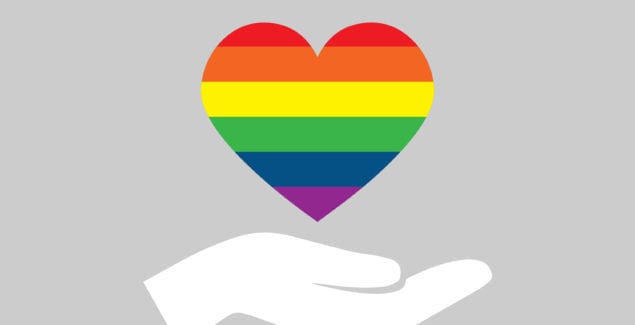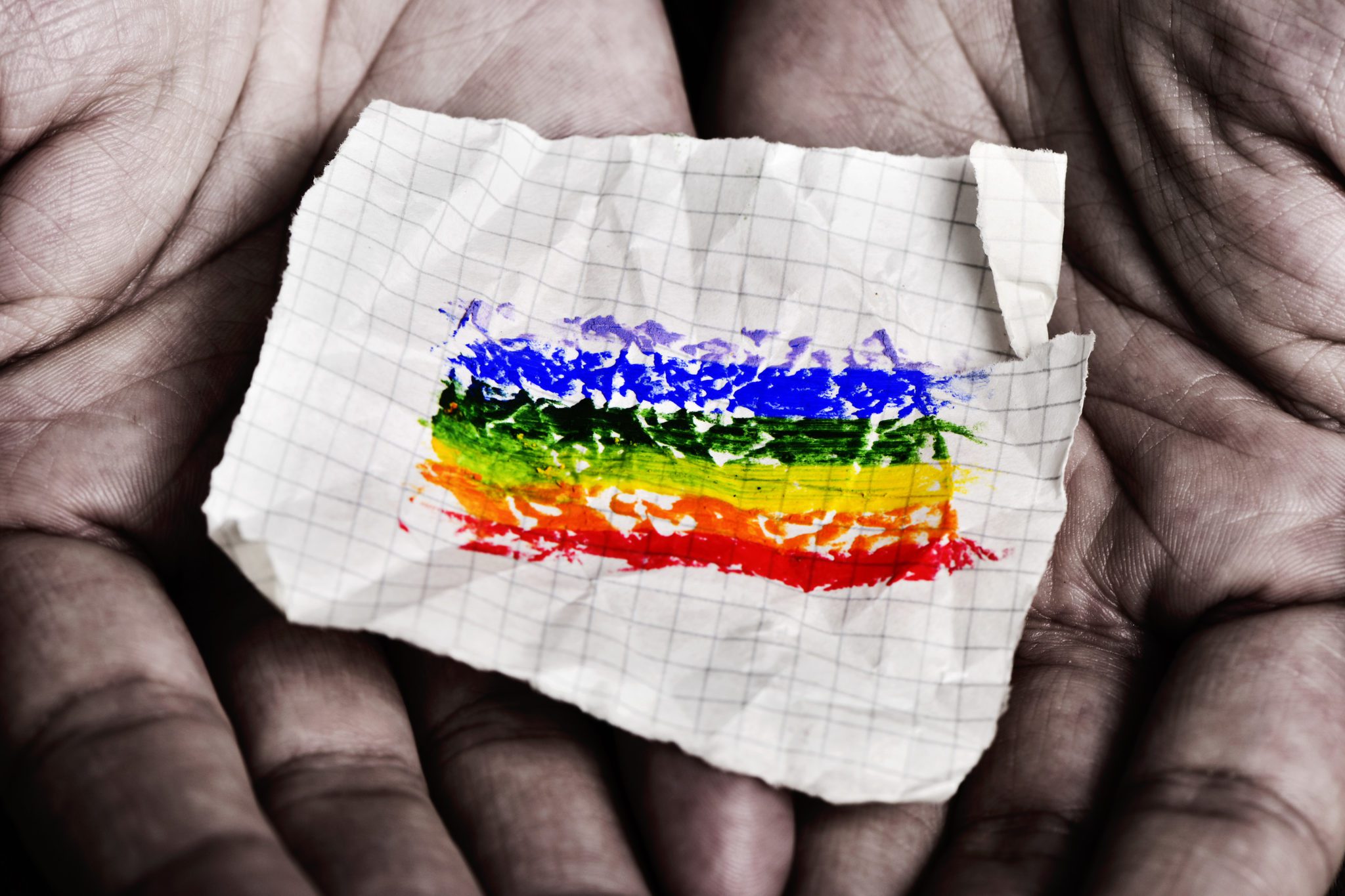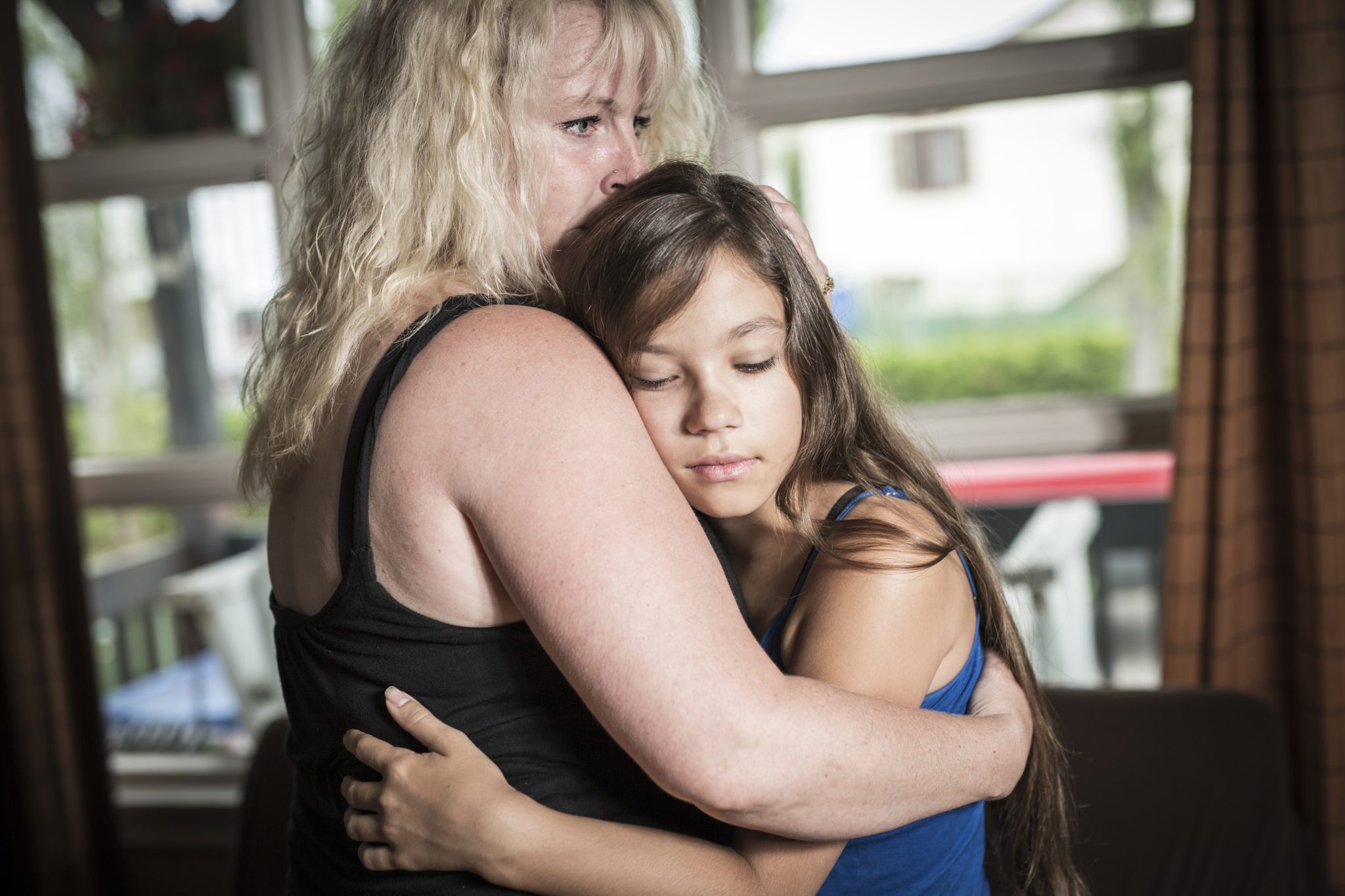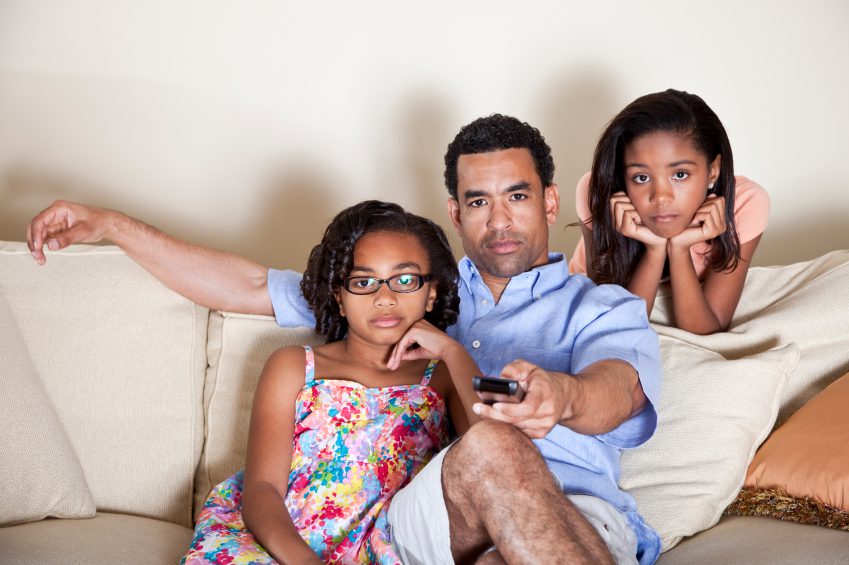Helping Your Kids Following The Orlando Tragedy

Posted in: Grade School, Hot Topics, Infants & Toddlers, Pre-School, Teenagers, You & Your Family
Topics: Hot Topics
Our hearts go out to the families of those who lost their lives and were injured in the recent terrorist act in Orlando—an event that is being called the most extensive mass shooting in this country’s history.
Unfortunately, this is not the first time we at The Clay Center have had to write about parenting in the wake of the latest act of terrorism. As we’ve advised in the past, it’s critical that we help our children—as well as ourselves—process this horrible act of hate.
Let’s first consider some of the key issues at stake:
- First, we should be proud of the progress we’ve made in improving the fundamental rights and privileges of diverse populations. However, as with all social change, we must also recognize that there will inevitably be some backlash against the progress made. Nevertheless, this backlash should NEVER be invoked to explain, and certainly not to excuse, acts of violence.
- During the last two presidential terms and throughout the current presidential debates, we have witnessed a dangerous inability by our leaders to resolve ideological conflicts. We have seen them eschew civilized debate in favor of crass and provocative language, and increasingly intractable social beliefs and positions.
- While most would agree to the personal right to own firearms, we have not yet seen sufficient resistance to the all-too-common assault rifles that clearly have no place outside of a warzone.
- We have seen greater and more sensational media coverage of terrorism, extremism, and corresponding acts of violence. This coverage has occurred in traditional media as well in the new and more volatile world of social media.
- We need, as a nation, to slow down. We need to stop and calmly consider how best to manage the media consumption to which our children are exposed. The impact of their untethered access requires calm and thoughtful consideration on the parts of journalists, parents, teachers, and the healthcare community as a whole.
With these thoughts in mind, let’s think about how to help our children through the recent event in Orlando.
What Can We Do?
At times like these, amid our shock, grief, and fear, we need to be particularly attuned to the impact such an event has on our children. Kids of all ages have questions and various emotional reactions—compounded all the more by the media footage and commentary that they may be seeing and experiencing. It is abundantly clear that children and teens can develop significant stress from unfettered media exposure.
While we want to protect our kids from the horrific images and stories from the attack, it is increasingly and understandably difficult to create an impervious shield. Full protection is impossible, and so we should instead be prepared to help our children process their feelings about this act of hate.
In fact, it’s our obligation as parents and caregivers to provide comfort, reassurance, and guidance to our kids. Their very well-being depends on our capacity to deliver this message. No good can come from telling our children that their world has become too dangerous.
Here are some tips for all of us as we navigate these trying times.
Parents And Caregivers
Let’s face it: we’re all scared. This terrorist act leaves us feeling afraid, angry, and insecure. However, we as adults need to find our own way of coping; after all, the more secure we feel, the better we are able to help our kids.
- We need, in times like these, to engage with others. Adults as well as kids require a sense of community to help us feel connected and protected. Don’t worry alone; talk about what you are feeling with your partner, spouse, and friends. It’s our relationships that hold us safely in this world.
- Make time for self-care through relaxing activities such as reading, listening to music, or exercising.
- Pace yourself in terms of the amount of information you choose to consume. Sometimes, it’s best to just disconnect completely. This is hard for all of us immersed in our digital age.
- If you have specific questions about your kids, call your pediatrician, primary care provider, or mental health professional for advice.
Universal Impact On Children Of All Ages
Children need answers to three fundamental questions:
- Am I safe?
- Are you, the people who take care of me, safe?
- How will these events affect my daily life?
Parents should expect to answer these questions over and over again. For those with toddlers and preschool children who may not yet be able to express their concerns in words, it’s still important to reassure them that everyone is safe, and that life will continue in a normal fashion.
In addition to addressing the three fundamental concerns above, here are some general principles for children of all ages:
- Keep as normal a routine as possible to demonstrate that life is secure despite the event that happened.
- Share your feelings with your children—and, ask them to share their feelings with you. Let them know that it’s OK to be frightened, sad, or angry; it’s all part of being human.
- While you should try to answer your children’s questions at a level they can understand, remember that you may not have an immediate answer for everything. Some questions simply don’t have good answers.
- Remember that RELATIONSHIPS WITH FAMILY and close friends are crucial; they are the foundation of your children’s world. Help them maintain proximity and closeness in any way possible.
Most children will be able to cope with the support and understanding of their parents, teachers, coaches, and community members. However, some who may be vulnerable due to previous personal experiences may require special attention from a school counselor or primary care provider.
Infants, Toddlers, And Preschoolers
Very young children are more disturbed by their parents’ and caregivers’ distress than by the event itself. That’s why they’re more apt to be comforted by your actions than by your words.
What can parents expect to see in this age group?
- Increased anxiety when separated from parents and caregivers.
- Looking to parents for their own reactions.
- Emotional regression, such as increased clinging or whiny behavior.
- Difficulty sleeping, fear of the dark, or bed-wetting.
- Irritability, including temper outbursts and increased sensitivity to loud sounds.
- Picky eating.
- Regression to “old” behaviors, such as thumb-sucking and wanting to sleep with parents.
What can parents do if they see these kinds of behaviors?
- Spend additional time with your kids; provide more hugging, cuddling, and play time.
- Be patient and reassuring, particularly with difficult regressive behavior.
- If your kids want to sleep in your bed, it’s OK—especially at times of great stress.
- Limit exposure to news coverage of the attack, at least when your children are in the room. They do not yet have the ability to put the frightening images they see into perspective.
- Maintain normal routines and minimize unnecessary separations.
- Ask your kids if they have any worries, and share your own to demonstrate that it’s OK to talk about such things. Some kids may express their feelings by drawing, coloring, or playing fantasy games with dolls or action figures. Encourage this, and try to play along. Such play may reveal their emotional struggles while simultaneously helping them resolve the feelings with which they are struggling.
School-Aged Children
Children between the ages of 6 and 12 are more advanced cognitively. They have a clear sense of right and wrong, but tend to be strictly rule-oriented. They have a simplistic view of “good guys” and “bad guys,” and feel safest when things are clear-cut. They also have a greater sense of empathy, and can appreciate the sadness or fear of others (even those they see on TV). Despite these advances, they are not yet able to comprehend abstract concepts like justice, and they have a limited sense of causality. They are also not able to distance themselves emotionally from events and see things truly objectively. Therefore, they may “personalize” events, as if they happened or will happen to them or their families. While they may be reassured by talking through and processing the incident better than younger children, they can become overwhelmed and confused with a complex event like this that is highly charged emotionally.
What can parents expect to see in this age group?
- Anxiety around separation from family; sometimes not wanting to play with friends or go to school.
- Difficulty sleeping, fear of the dark, of burglars, or of harm coming to themselves or their parents.
- Increase in physical complaints, such as stomachaches or headaches.
- Poor concentration at home or at school, occasionally with decreased academic performance.
- Thoughts about death and dying.
- Worrying, either about bad things happening, or about seemingly trivial details of daily life.
- Irritability, including temper outbursts and crabby behavior.
What can parents do if they see these kinds of behaviors?
- Remember that kids often work through their emotional issues with play instead of words. Don’t be surprised if your children use toys to replay images of destruction they’ve seen or imagined. This is healthy, and can also give you insight into their fears and misunderstandings.
- If they seem “stuck” in one scenario—that is, they repeat the same event over and over—offer some suggestions for change.
- If your children are watching news reports of the attack, be in the room so that you can clarify what they’re seeing and hearing. In this case, however, it’s a good idea to limit their exposure altogether.
- Let younger children know that even though they may see the same horrific images dozens of times, they are all related to one event (in this case the Orlando attack) that happened on one day only.
- Remind your children of what the real distance is between the site of the event and their home. Many school-aged children have no concept of the distance of Florida or Orlando to where they live.
- Expect your children to ask the same questions several times. Be patient; remember that by asking their questions, they’re letting you know that they trust you.
- Remind your children that there are many, many more good people in the world than there are bad people, and that the good people will always try to protect them.
- Let your children participate in efforts to make things better. This might include raising money for relief efforts, helping in community activities, or sending a card or drawing to victims of the attack.
- Help your children get back to “business as usual.” Keeping them to a normal schedule will help to reassure them.
- Encourage your children to express their worries and concerns, and respond in kind by sharing yours. Allow feelings of anger, but try to re-direct misplaced feelings of hate.
Teenagers
Many adolescents will be scared. That’s because they’re old enough to understand the implications of what happened in Orlando, and they’re wondering how the events of June 12th will impact their lives personally. They’re also struggling with questions about prejudice, justice, power, and control—and, since they’ve likely heard a lot about ISIS and mass killings, for them, the world may well feel terribly unsafe.
What can parents do?
- Let your teenagers listen in as you discuss both the event and your feelings about it with other adults. If they join in, welcome their participation—even if you disagree with what they have to say. The simple act of talking will go a long way in helping them put their concerns into perspective.
- Be with them as they watch news reports of the event and its aftermath. Comment on what you’re seeing, and listen openly to their comments as well.
- Ask them about what they are seeing on Instagram, Twitter, Facebook and other digital media. Look at some of the posts together, and talk openly about both the ideas and feelings represented.
- Sometimes it’s easier for teens to talk about disturbing things if they don’t have to look you in the face. That’s why some of the best discussions take place while you’re doing something else, such as playing a game, driving in the car, or performing household chores.
- Share your feelings with them; this gives adolescents implicit permission to do the same with you.
Sadly, this will not be the only time we need to help our kids through hard times. Global terrorism and lone wolf acts of hate are part of a modern reality we all need to acknowledge.
While we all hope for a kinder and gentler world, we need to be prepared to nurture and protect the most vulnerable population among us—our children.


 Share
Share Tweet
Tweet






